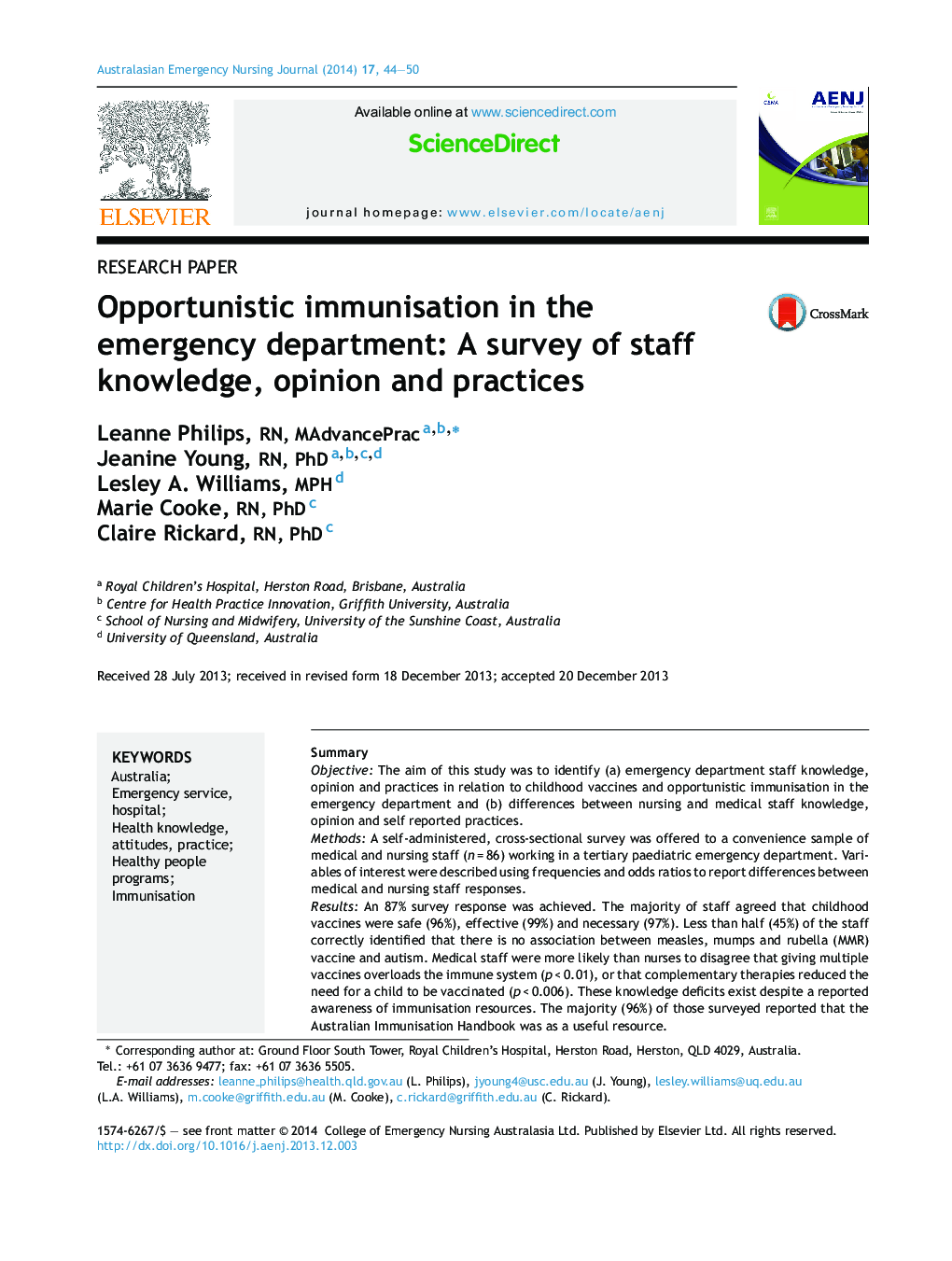| Article ID | Journal | Published Year | Pages | File Type |
|---|---|---|---|---|
| 2605584 | Australasian Emergency Nursing Journal | 2014 | 7 Pages |
SummaryObjectiveThe aim of this study was to identify (a) emergency department staff knowledge, opinion and practices in relation to childhood vaccines and opportunistic immunisation in the emergency department and (b) differences between nursing and medical staff knowledge, opinion and self reported practices.MethodsA self-administered, cross-sectional survey was offered to a convenience sample of medical and nursing staff (n = 86) working in a tertiary paediatric emergency department. Variables of interest were described using frequencies and odds ratios to report differences between medical and nursing staff responses.ResultsAn 87% survey response was achieved. The majority of staff agreed that childhood vaccines were safe (96%), effective (99%) and necessary (97%). Less than half (45%) of the staff correctly identified that there is no association between measles, mumps and rubella (MMR) vaccine and autism. Medical staff were more likely than nurses to disagree that giving multiple vaccines overloads the immune system (p < 0.01), or that complementary therapies reduced the need for a child to be vaccinated (p < 0.006). These knowledge deficits exist despite a reported awareness of immunisation resources. The majority (96%) of those surveyed reported that the Australian Immunisation Handbook was as a useful resource.ConclusionOverall, the majority of staff agreed vaccines are safe, effective and necessary. This study highlighted that staff knowledge deficits and misconceptions about vaccines and vaccine management may be barriers to promoting opportunistic immunisation practices in ED.
